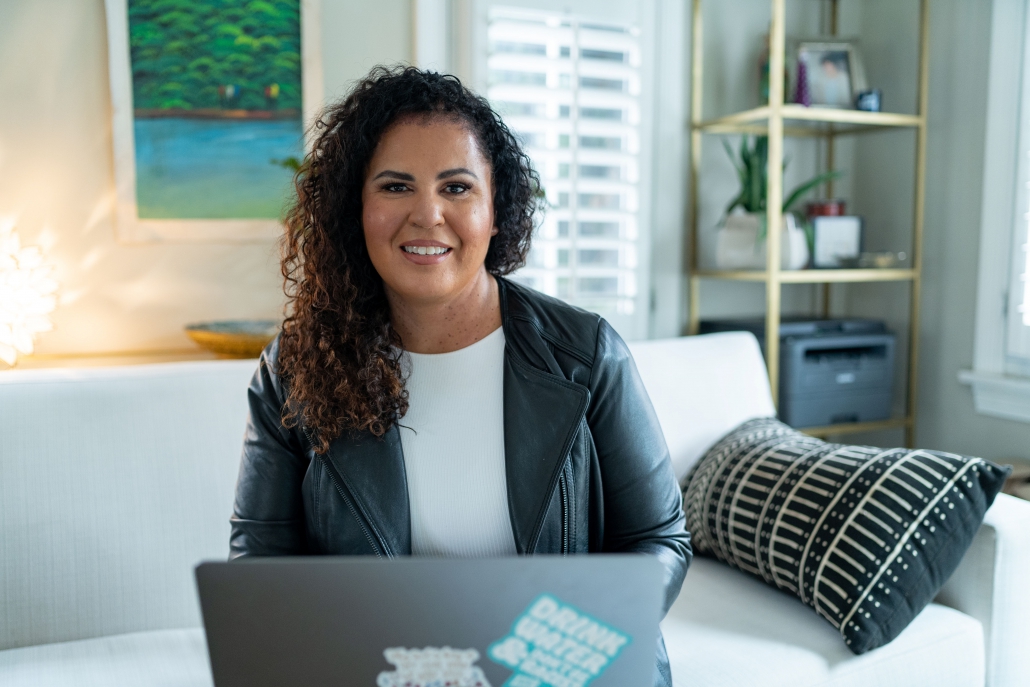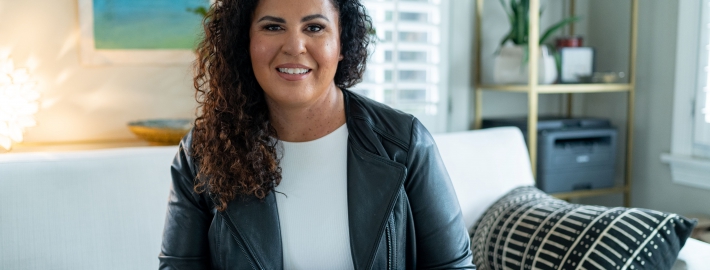UCLA internet studies and race scholar Safiya Noble awarded MacArthur Fellowship

Safiya Noble, an associate professor of gender studies and African American studies, and co-founder of the UCLA Center for Critical Internet Inquiry.
Professor Safiya Noble, director of an interdisciplinary research center at UCLA focused on the intersection of human rights, social justice, democracy, and technology — was announced today as a recipient of a prestigious MacArthur Fellowship from the John D. and Catherine T. MacArthur Foundation.
In 2019, Noble, an associate professor of gender studies and African American studies, co-founded the UCLA Center for Critical Internet Inquiry, with Sarah T. Roberts, associate professor of gender studies and information studies.
Noble’s scholarship focuses on digital media and its impact on society, as well as how digital technology and artificial intelligence converge with questions of race, gender, culture and power. She is the author of the bestselling book “Algorithms of Oppression: How Search Engines Reinforce Racism,” which examines racist and sexist bias in the algorithms used by commercial search engines.
“Noble’s work deepens our understanding of the technologies that shape the modern world and facilitates critical conversations regarding their potential harms,” the MacArthur Foundation said in a statement.
The MacArthur Fellowship is a $625,000, no-strings-attached award to people the foundation deems “extraordinarily talented and creative individuals.” Fellows are chosen based on three criteria: exceptional creativity, promise for important future advances based on a track record of accomplishments, and potential for the fellowship to facilitate subsequent creative work. Noble is one of 25 individuals the foundation selected for fellowships in 2021.
In addition to recognizing and supporting exceptional creativity, the fellowship is intended to inspire people to pursue their own creative interests.
For Noble, who is also affiliated faculty in UCLA’s School of Education and Information Studies, that means launching her nonprofit EquityEngine.org, a leadership and empowerment initiative for women of color.
“The MacArthur Fellowship will have a transformative impact on the work I do to abolish the harmful and discriminatory effects of digital technologies,” Noble said. “It’s a great and unexpected honor, and I’m grateful to the selection committee and all my colleagues who made this possible. I plan to use this award to accelerate and amplify the work of other Black women and women of color.”
In addition to her research, Noble works with engineers, executives, artists and policymakers to think through the broader ramifications of how technology is built, deployed and used in unfair ways. She challenges them to examine the harms algorithmic architectures cause and shows the necessity of addressing the civil and human rights that are violated through their technologies.
With Noble’s award, seven current faculty in the social sciences are MacArthur Fellows, including historian Kelly Lytle- Hernández (2019), anthropologist Jason De León (2017), linguistic anthropologist Elinor Ochs (1998), sociologist Rogers Brubaker (1994), anthropologist Sherry Ortner (1990) and geographer Jared Diamond (1985).
“As social scientists, it is increasingly important for us to interrogate the power that technology holds over our social structures, cultures, behavior and potential for progress,” said Darnell Hunt, dean of the division of social sciences in the UCLA College. “Safiya’s work has done just that. We are deeply gratified and proud that the MacArthur Foundation has recognized Safiya for her ongoing commitment to engaging community, inspiring action and her efforts to build a more equitable world for all.”
Along with Roberts, Noble also serves as co-faculty director of the interdisciplinary Minderoo Initiative for Technology and Power held within the Center for Critical Internet Inquiry.
“This recognition of Dr. Noble by MacArthur Foundation is so timely, and rightly recognizes her indefatigable efforts, her incredible scope of vision, and her ability to hold fast to her convictions in the name of justice and equity, often years before the rest of the world catches up,” Roberts said. “Time and again, I have watched her fearlessly, boldly and assuredly lead the vanguard, push the boundaries of the possible, demand and then pave the way for something better. This world is a better place for the work of Safiya Noble. I am so proud to see her recognized as the iconoclastic genius that she is.”
Noble joins 13 other UCLA faculty as MacArthur fellows in total, a list that also includes mathematician Terence Tao, director Peter Sellars, astrophysicist Andrea Ghez and historian of religion Gregory Schopen.
This article originally appeared in the UCLA Newsroom.




 iStock.com/golero
iStock.com/golero